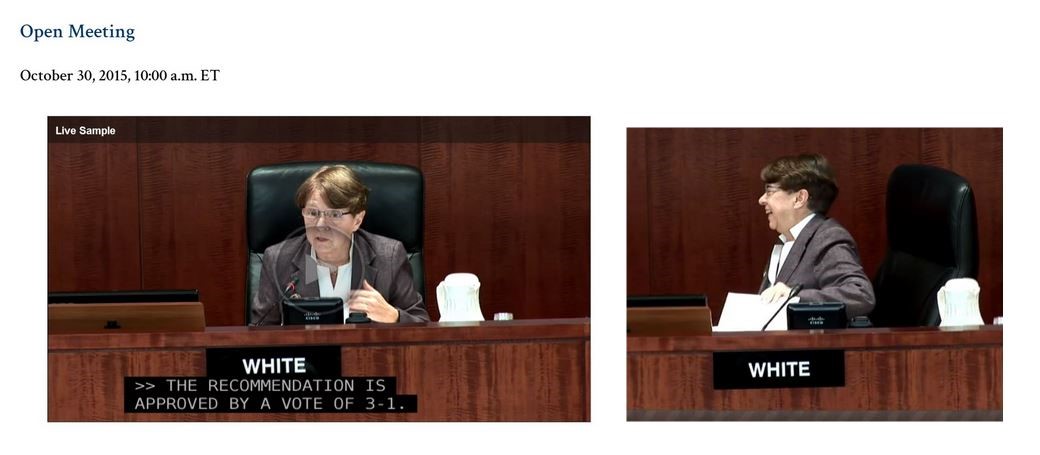Investment Crowdfunding is finally legalized.

Investment Crowdfunding is finally happening.
On Friday, Oct 30th 2015, the SEC revealed and voted to pass the long awaited final rules for Title III of the JOBS Act, which is the part of the 2012 law that specifically enables online investment crowdfunding. The JOBS Act bill was signed into law by congress and president Obama three and a half years ago to modernize finance rules to allow startups to raise money online, and give individual investors more opportunities to invest in startups and small companies, but it has taken the SEC until now to work through all the details of exactly how the new rules will be implemented.

New Rules; Good for Startups, Protective of Investors, Hard on Crowdfunding Platforms.
The final crowdfunding rules were pretty close to what was expected. The SEC made the rules quite reasonable for the startup companies raising money, allowing them to crowdfund up to one million dollars per 12 month period using online investment crowdfunding platforms. The companies raising money under the new crowdfunding rules have to submit basic materials explaining their business, the use of funds they are raising, and financial statements to the SEC. The process has been streamlined allowing startups to submit Q&A style disclosures, and creating a special allowance for companies raising money via crowdfunding for the first time to not to have to submit audited financial statements.
The new rules are very protective of investors, sharply limiting how much individuals can invest based on their income and net worth. Those that earn less than $100,000 per year will be limited to investing 5% of their income or net worth in a 12 month period, those that earn above $100,000 will be limited to 10%.
The biggest regulatory burden falls on the shoulders of the investment crowdfunding websites (also called portals, or platforms, or intermediaries,) which will host the campaigns for companies raising money. The crowdfunding websites will need to register with the SEC and will be responsible for doing due diligence and keeping out fraudulent companies, educating investors and making sure they invest within their limits, and reporting to the SEC. Interestingly the crowdfunding websites will be allowed to accept ownership shares in the startups they host as part of their payment, as long as they get are on the same terms as crowdfunding investors. (This a simplification of the new rules, to get into the details check out the CrowdExpert guide to the new rules here.)
Coming Soon:
The new rules will go into effect 180 days after they are entered into the federal register, which should happen soon, so we can expect to see investment crowdfunding opportunities coming online in spring/summer 2016.
Wait, Wait, There’s More, Much More:
This was the last of the seven sections, or titles, of the JOBS Act to be implemented by the SEC. While Title III is the one actually called the “crowdfunding” regulation, two of the other titles of the JOBS Act which have already gone into effect also created new and potentially more powerful rules for companies to raise money online via investment crowdfunding.
Title II:
Enacted on September 23 2013, Title II of the jobs act updated an SEC registration exemption called “Regulation D” allowing companies that raise money only from accredited investors (with an income greater than $200k per year or net worth above $1mil) to publically advertise their investment offerings and list on online crowdfunding platforms. Currently accredited investors can go and invest in many startup opportunities that use the new Regulation D rules. Popular accredited investor online crowdfunding platforms include: CrowdFunder, CircleUp, EquityNet, Fundable, FundersClub, Microventures, OneVest, WeFunder, and more. There are also several platforms that specialize in using these new rules with Real Estate investment and Peer-to-Peer lending. (See the CrowdExpert directory of investment crowdfunding platforms for more.)
Title IV:
Earlier this year Title IV went into effect, updating “Regulation A” allowing more medium sized companies to do a “Mini-I.P.O.” style offering in which they can raise up to $50 million via crowdfunding from both accredited and nonaccredited investors per year. The reason we haven’t heard more about this yet is that the rules only went into effect on June 19th 2015, and the registration process with the SEC is both expensive, costing the company raising money between $50-$150k, and slow, taking about 6-8 months to get approved by the SEC. So far 50 companies have applied to use these new rules, and only 3 have been approved by the SEC to date. We can expect more companies to start raising money using these new Regulation A rules coming online in the next few months on crowdfunding platforms such as StartEngine and SeedInvest.
So How Do Investors Actually Make Money?
Somehow this is the question no one asks, or at least rarely answers. It’s one thing to finally be allowed the privilege of giving away your money to startups online and getting to think of it as an investment. It’s another thing to actually expect to eventually somehow get more money out of the deal than you put in, which is kind of the point of investing, right? Currently if you own part of a startup, you just sit and wait for a future day in which the company might either get acquired or go public, ideally for billions of dollars, but neither of these outcomes in guaranteed.
During the SEC announcements and discussion today it was fantastic to see Commissioner Aguilar make a special point out of telling the SEC that the next thing to focus on should be creating better rules to allow for secondary markets, where these shares in crowdfunded startups can be bought and sold, providing some liquidity to investors. Though, considering how long it took to get this part done, think of it as something to look forward to in the far future.






